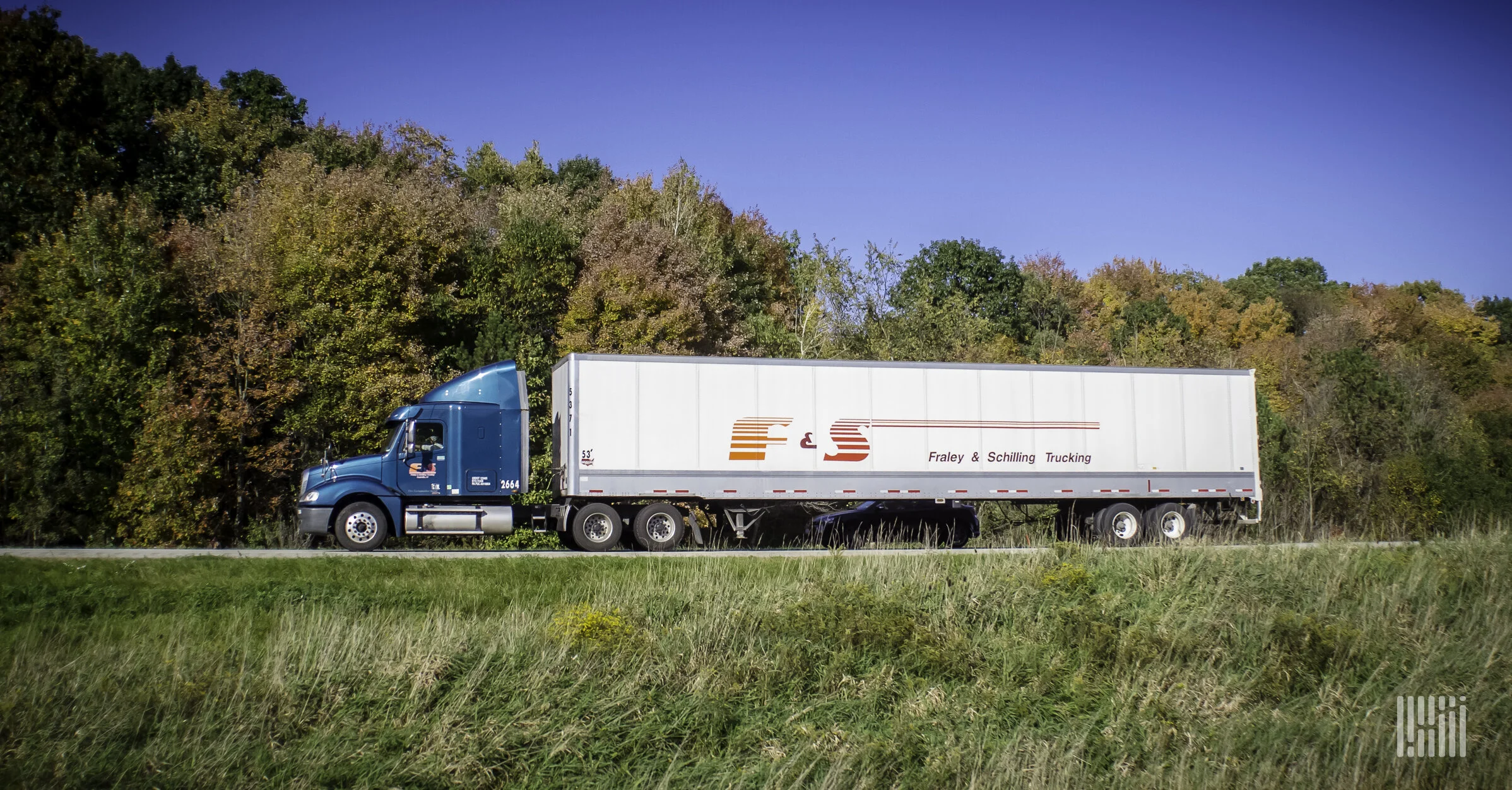
Fraley & Schilling has acquired the assets of KBT Enterprises, an Indiana-based carrier specializing in dry bulk material transportation. (Photo: Jim Allen/FreightWaves)
Purchase expands fleet to nearly 600 trucks, improves Eastern US services
Truckload carrier Fraley & Schilling has acquired KBT Enterprises, of Fishers, Indiana. KBT operates 33 tractors and 42 mostly pneumatic dry bulk trailers hauling bulk materials such as lime kiln dust, dry bulk cement and fly ash throughout Indiana and surrounding states.
Terms were not disclosed. Tenney Group, which specializes in mergers and acquisitions, advised the seller in the transaction.
Fraley & Schilling services all parts of the United States. The acquisition will help the company improve its services in the Eastern United States. Founded in 1955, Fraley & Schilling offers a variety of transportation and logistics services, including ultralight truckload services that feature flatbed, conestoga, dry van and bulk tanker options.
“The KBT Enterprises acquisition will allow us to augment and enhance our current dry bulk operations in Indiana and other regional Midwestern locations. Additionally, it will also add valuable talent to the great team at Fraley & Schilling along with access to KBT’s long-standing customer relationships,” said Andrew White, CFO of Fraley & Schilling.
KBT co-owners Chuck Held and Sandy Howard said retirement spurred them to sell. Both will remain for an undetermined time in a limited consulting role. The KBT Enterprises brand is expected to continue.
Fraley & Schilling’s fleet now numbers almost 600 trucks.
“This was the right time for us to make a change. I am very pleased about what this deal means for our team and for our customers. It’s a win for everyone,” Held said.
Howard added, “I am very proud of what our team has accomplished together over the past 25 years and about the future of KBT being in the hands of the folks at Fraley & Schilling. They have a great organization.”
Spencer Tenney, president and CEO of Tenney Group, said the acquisition could be part of a broader trend of companies looking to weather uncertain climates.
“Fraley & Schilling has been a successful, forward-thinking company for decades. I think we can expect more established companies, like Fraley & Schilling, to begin integrating acquisitions into their broader growth strategies to combat the growing challenges in trucking,” he said.